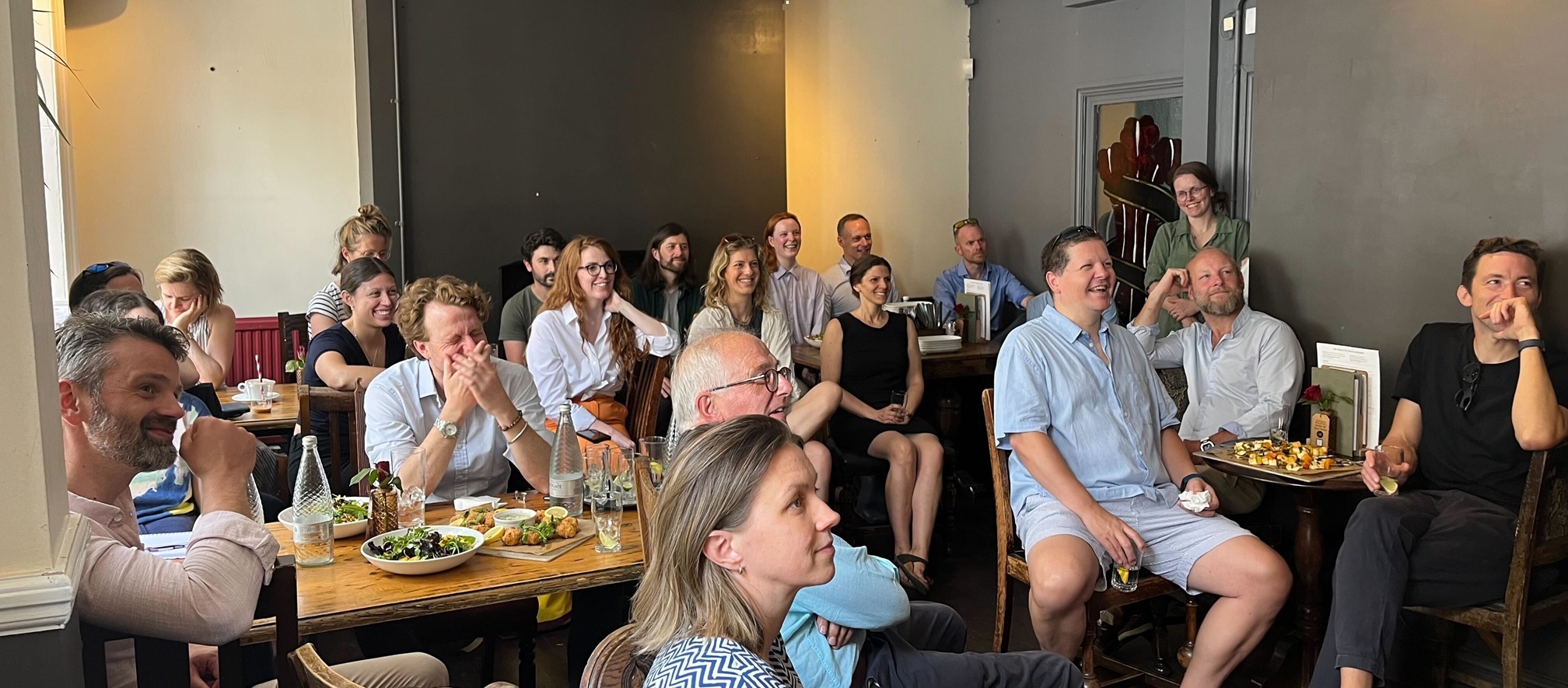The power of getting the right people together in a room cannot be underestimated.
Especially when the work is to reimagine the way financing is purposed, designed, and managed. To make money a transformative force in building a low-carbon, climate-resilient, just, and inclusive society.
It’s not easy work. So it’s critical to build and nurture a space that one of our community described as feeling like “they are not alone in rowing upstream and against the current”.
In an unexpectedly hot pub for London Climate Action Week 2024, we gathered a group of systemic investing pioneers to do just that. Here’s a taste of some of the key topics that came out of our discussions:
- Recognising where we are. Despite how compelling this agenda feels to many people within our community, most investors are at the beginning of the impact journey. This is evidenced by both actual AUM, but also conversations that people in the field are having with their networks. We need new investment practices and instruments, but we also need to ensure we seed the next wave of asset managers who are fluent in systemic investing.
- Facilitating interactions. The challenge of bringing together different types of capital – especially public finance, return-seeking investment capital, and philanthropic capital – came up again and again. We have to break down silos and create spaces to connect actors that need to interact (but don't necessarily do so on a regular basis) to really have a chance at delivering lasting impact.
- Speaking the right language. We need to use language that these different actors can understand, and in some cases do the work of translation. We have to be able to articulate how our work fits with existing practices, rather than forcing others to understand and use our terminology.
- Getting practical. We have to get into the nitty-gritty details of systemic investing and figure out how to engineer new investment models and bring them into the world – despite the fact that there is no guidebook on how to do that. This includes designing in justice, equity, diversity and inclusion effectively. (Watch this space for our Design Guide, which we’ll be releasing in stages from the Fall onwards).
We’ll be feeding the insights from these discussions into our work. Thank you to all those who joined us.
